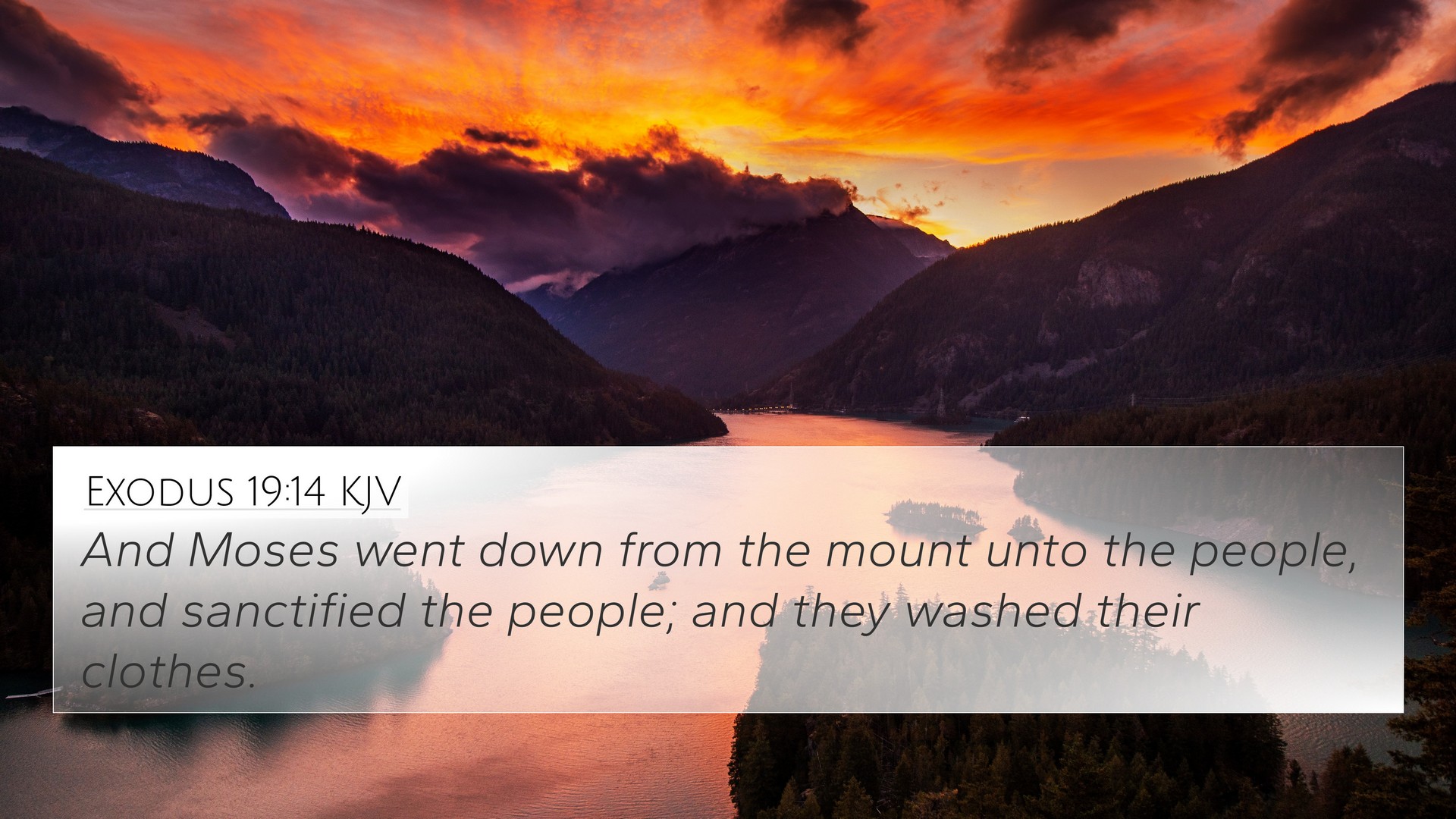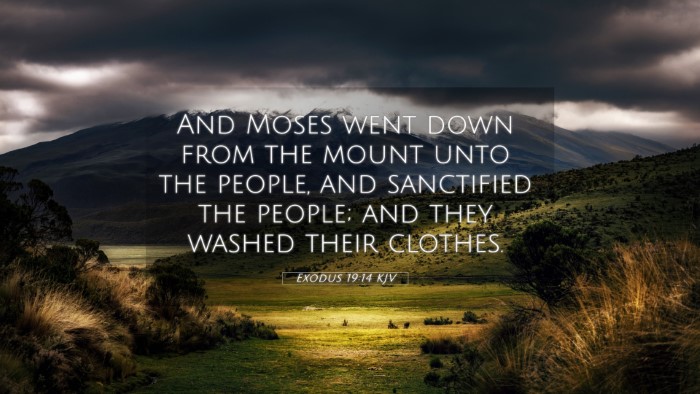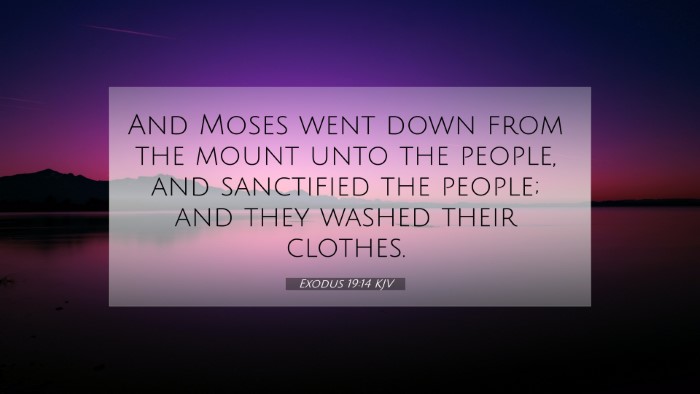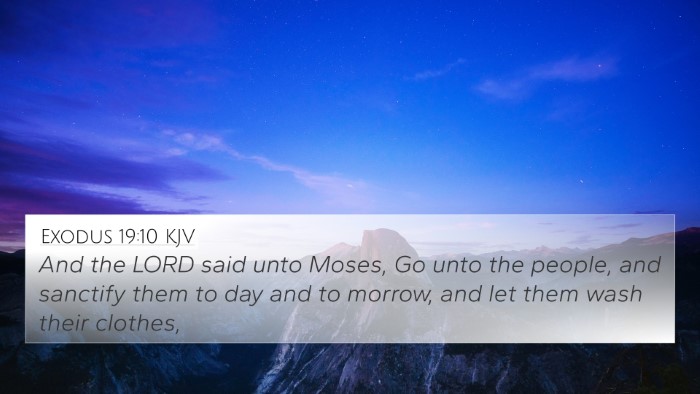Understanding Exodus 19:14
Exodus 19:14 states, "So Moses went down from the mountain to the people and sanctified the people, and they washed their clothes." This verse takes place at a pivotal moment before the giving of the Ten Commandments, emphasizing the need for purity and preparation to receive God's law.
Contextual Analysis
The backdrop of this verse is significant. The Israelites had come to Mount Sinai where God was to reveal Himself and deliver His commandments. The preparation specified in this verse underscores the holiness of God and the importance of the people being set apart to receive His word.
Commentary Insights
- Matthew Henry: Henry emphasizes that the washing of the clothes signifies the people's purification. It is a physical act reflecting the need for readiness in their hearts and minds as they approach a holy God.
- Albert Barnes: Barnes notes that Moses served as a mediator, preparing the people to receive God's instructions. He highlights that these preparations were necessary to ensure that the people enter into a proper relationship with God.
- Adam Clarke: Clarke elaborates on the significance of being sanctified. He indicates that the washing signifies a need for moral and spiritual cleanliness, as God demands purity from His followers when receiving His commandments.
Thematic Connections
Exodus 19:14 is deeply rooted in themes of holiness, preparation, and the covenant relationship between God and His people. This verse illustrates the inter-Biblical dialogue about God's expectations for His people and reflects on how believers today are called to prepare their hearts for God's word.
Bible Cross-References
This verse connects with various other scriptures that accentuate themes of sanctification, preparation, and receiving God's law:
- Leviticus 11:44: God commands His people to be holy as He is holy, reinforcing the call for purity.
- Psalms 24:3-5: These verses emphasize the need for clean hands and pure hearts before approaching God.
- 1 Peter 1:16: This New Testament scripture reiterates the call to holiness, echoing God's command in Leviticus.
- James 4:8: James calls believers to cleanse their hands and purify their hearts, which aligns with the purification theme in Exodus.
- Hebrews 12:14: The call to pursue peace and holiness without which no one will see the Lord, echoes the need for sanctification.
- 2 Corinthians 7:1: Paul instructs believers to cleanse themselves from all filthiness of the flesh and spirit, reflecting the theme of preparation.
- Romans 12:1: The idea of presenting our bodies as a living sacrifice also connects to the concept of holiness required in Exodus.
Inter-Biblical Dialogue
Throughout the Bible, the call for sanctification and preparation before God is a recurring theme. The connection between Exodus 19:14 and New Testament teachings exemplifies the continuity in God's message:
- In the Gospels, Jesus emphasizes purity of heart and intentions, highlighting a spiritual readiness that transcends mere physical cleanliness (Matthew 5:8).
- Paul's letters frequently address the need for moral integrity among believers as they prepare to receive God's grace (Ephesians 5:25-27).
Practical Application
For modern believers, Exodus 19:14 serves as a reminder of the importance of spiritual preparation when approaching God's word. Just as the Israelites were instructed to sanctify themselves, Christians today are called to engage in practices that promote purity and readiness to receive spiritual teachings.
Conclusion
In summary, Exodus 19:14 serves as a fundamental verse that invites reflection on personal holiness and preparation for encountering God's commands. It establishes a powerful framework for understanding the importance of sanctification in the life of faith, while also illustrating the enduring connections between biblical texts.
Additional Resources
For further study on cross-referencing biblical texts related to holiness and preparation, consider utilizing tools like a Bible concordance or a Bible cross-reference guide. These resources can enhance your understanding of how different scriptures interconnect and support one another.



